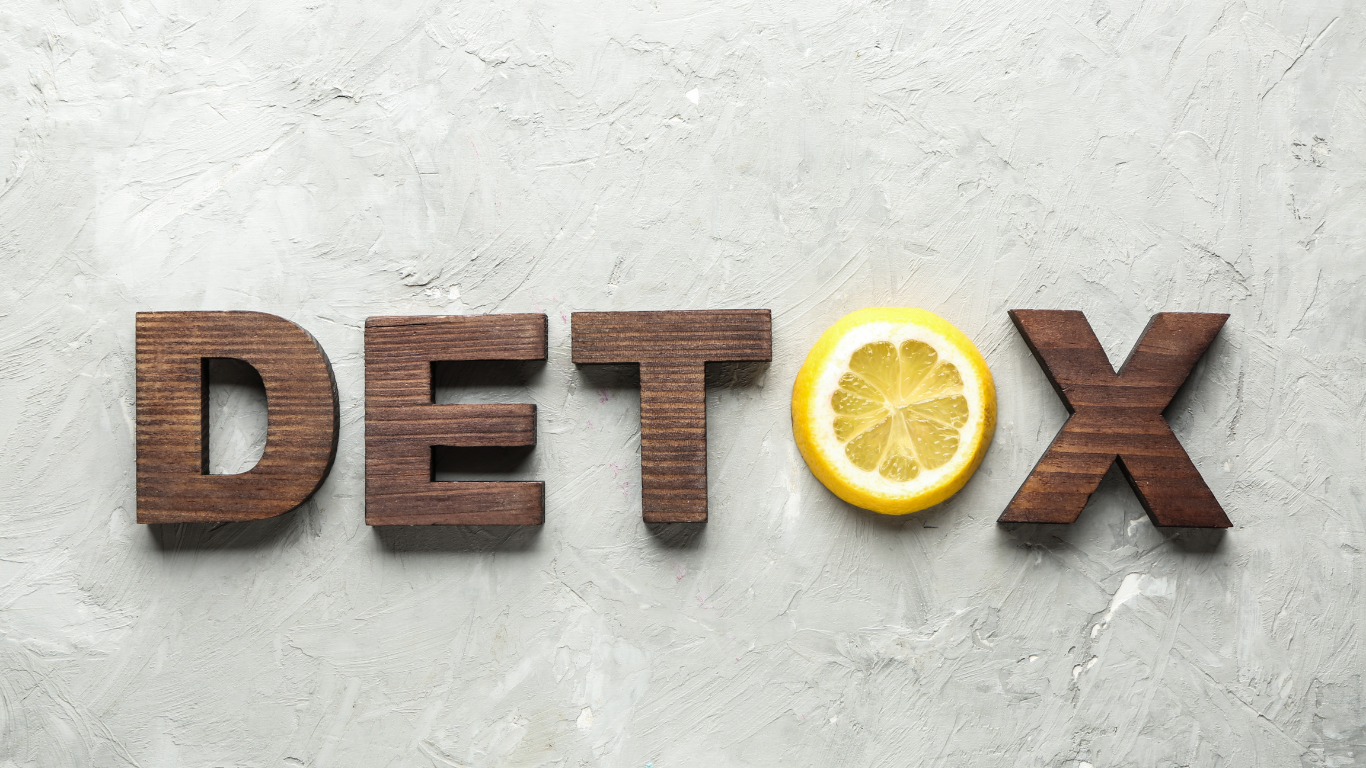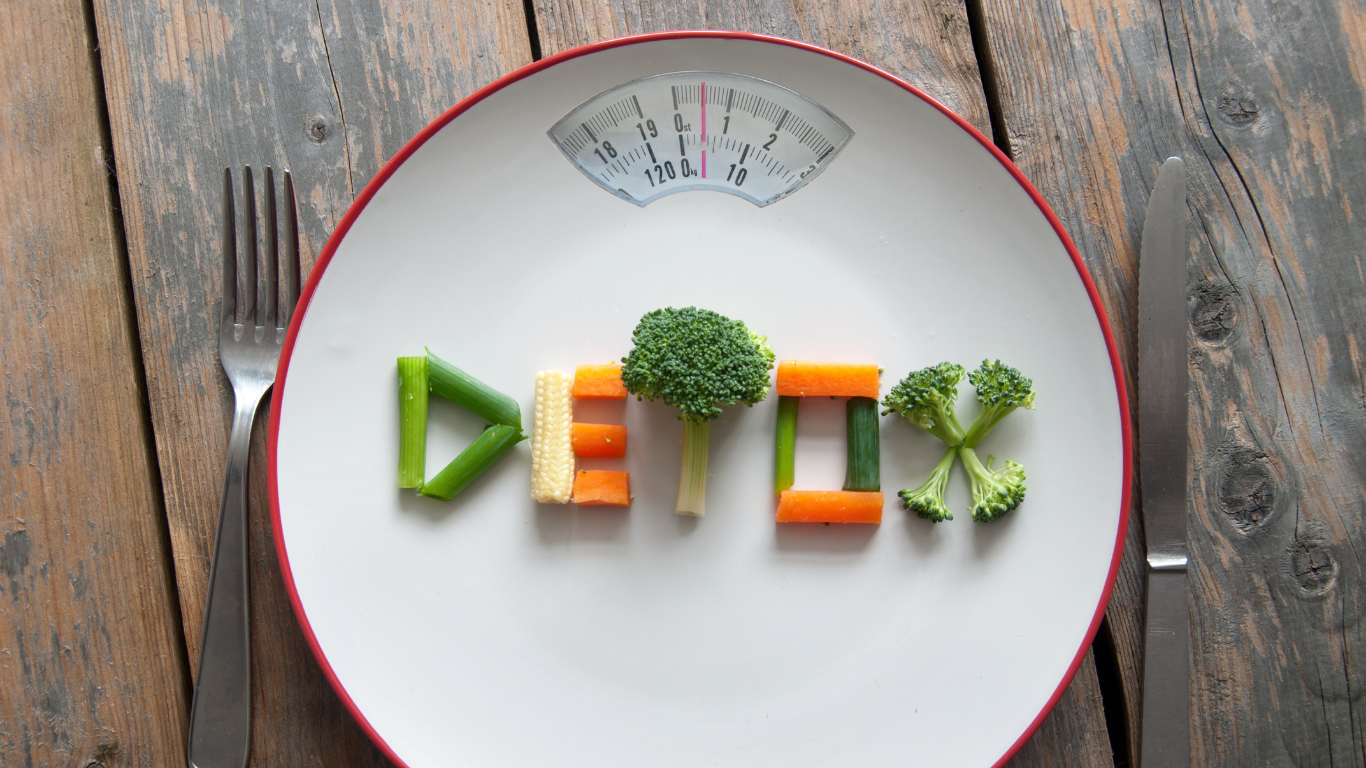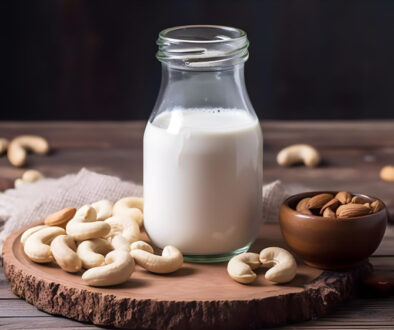
The Ultimate Guide to Fasting and Detoxification Cleanse Your Body for Optimal Health
Are you feeling sluggish, bloated, or just not quite yourself? If so, it might be time to consider fasting and detoxification. Fasting and detoxification are important for cleansing the body of toxins and giving your organs a chance to rest and rejuvenate. In this guide, we’ll cover some of the questions about fasting and detoxifications so that you can start on the path to optimal health.
However, it is important to note that fasting is not suitable for everyone and should only be done with caution or under the supervision of a healthcare professional. Before trying any of this, it is crucial to consult with your doctor to determine if it is safe for you and to make sure you are doing it correctly to avoid any potential risks.
What is fasting and detoxification? How does it work?
Fasting
Fasting is the process of abstaining from food or drink for a specific period of time. During fasting, the body enters a state of ketosis, where it begins to burn stored fat for energy instead of glucose from food. This can lead to weight loss and improved metabolic health. Fasting has also been linked to other potential health benefits, such as reduced inflammation, improved blood sugar control, and increased longevity. However, fasting may not be suitable for everyone and should be approached with caution. Particularly for those with medical condition or who are pregnant or breastfeeding. It’s important to consult with a healthcare provider before embarking on a fasting regimen.
Detoxification
Detoxification is the natural process of removing toxins and waste products from the body. This process mainly occurs in the liver, where toxins are transformed into water soluble compounds and eliminated through kidneys and bowel movements.
How it can help with weight loss, mental clarity, and overall well-being
Fasting and detoxification can help with weight loss by promoting fat burning and reducing calorie intake, while also improving mental clarity and overall well-being by reducing inflammation, improving gut health, and supporting cellular repair and regeneration.
Types of Fasting
Water Fasting
- Water fasting is a type of fasting where you consume only water for a certain period, usually 24-72 hours or even longer. It is believed to provide several health benefits, such as detoxification, weight loss, and improved mental clarity
Juice Fasting
- Juice fasting is a popular detoxification method that involves consuming only fresh fruit and vegetable juices for a certain period of time, typically 1 to 3 days. During a juice fast, solid foods and other liquids are avoided, allowing the digestive system to take a break and the body to focus on healing and eliminating toxins. Some people choose juice as a way to jumpstart weight loss, reduce inflammation, and boost energy levels. While juice fasting can be a healthy choice for many people, it is important to consult with a doctor before starting any kind of fasting regimen to ensure that it is safe for your individual needs.
Intermittent Fasting
- Intermittent fasting is an eating pattern that involves cycling between periods of eating and fasting. It has gained popularity in recent years due to its potential health benefits, such as weight loss, improved blood sugar control. It is an effective way to improve overall health. During the fasting period, you refrain from eating or drinking anything with calories, while during the eating period, you eat normally. There are different methods of intermittent fasting, such as the 16/8 method, the 5:2 diet, and alternate-day fasting.
The benefits and drawbacks of each type
- Water fasting involves abstaining from all foods and beverages except for water for a set period. This method allows the digestive system to rest, leading to improved digestion and the elimination of toxins. It can also aid in weight loss and the improvement of certain health conditions, such as high blood pressure and diabetes. However, water fasting can also lead to dehydration, electrolyte imbalances, and other health risks. It is essential to consult a doctor before attempting a water fast and to ensure that it is done safely and under medical supervision.
- Juice fasting involves drinking only fruit and vegetable juices for a set period. This method allows for the consumption of essential vitamins and minerals, while also providing the body with energy and aiding in detoxification. However, juice fasting can also lead to nutrient deficiencies and spikes in blood sugar levels, especially if the juices contain high levels of natural sugars. It is crucial to choose juices that are low in sugar and to consult a doctor before attempting a juice fast.
- Intermittent fasting involves limiting food intake to specific times of the day or week. This method has been shown to aid in weight loss, improve metabolic health, and increase longevity. It is also easier to maintain than other fasting methods since it does not involve complete food restriction. However, intermittent fasting may not be suitable for everyone, particularly those with specific health conditions. It is essential to consult a doctor before attempting intermittent fasting and to ensure that it is done safely and under medical supervision.
Water fasting, juice fasting, and intermittent fasting are all viable options, but the choice of method should be based on individual health conditions and preferences.
How to Prepare for a Fast
Pre-fast preparation
Before starting a fast or detox, it is important to prepare your body to ensure that the process is safe and effective. Consulting with a healthcare professional is always recommended to determine if fasting or detoxing is appropriate for your individual health needs.
Here are some pre-fast preparation steps that you can take to make your experience more comfortable and effective:
- Hydrate: Drinking plenty of water is important before starting a fast or detox. It helps to flush out toxins and keeps the body hydrated.
- Eat clean: In the days leading up to the fast or detox, it is important to eat clean, whole foods. This will help to prepare the body for the upcoming changes and reduce the amount of toxins that need to be eliminated during the fast.
- Reduce caffeine and alcohol: Caffeine and alcohol can be dehydrating and may cause withdrawal symptoms during the fast. It is recommended to gradually reduce your intake of these substances in the days leading up to the fast.
- Get enough sleep: Adequate sleep is essential for overall health and well-being. Getting enough rest before the fast can help to reduce stress and support the body’s natural detoxification processes.
- Relax: Stress can interfere with the body’s natural healing processes. Before starting a fast or detox, take time to relax and reduce stress through activities like meditation, yoga, or deep breathing exercises.

What to eat before starting a fast
Before starting a fast, it is important to prepare your body by consuming nutrient-dense foods. Eating a balanced meal that includes fiber, protein, and healthy fats can help stabilize your blood sugar levels and reduce hunger pangs during the fast.
Some great options for a pre-fast meal include:
- Leafy green salads with avocado and a variety of veggies
- Smoothie bowls with plant-based protein powder, frozen fruits, and nuts
- Whole grain toast with mashed avocado or nut butter
- Grilled or roasted veggies with quinoa or brown rice
- Raw veggies with hummus or guacamole
How to gradually ease into fasting
To ease into fasting, start by reducing the number of meals you eat per day. Instead of three large meals, try eating two meals with a small snack in between. This will help your body adjust to reduced calorie intake.
Next, try extending the time between meals. If you usually eat breakfast at 8 am, try pushing it back to 10 am. This will gradually increase the amount of time your body is in a fasted state.
When you feel ready, you can try longer. Start with a 24-hour fast and gradually increase the length of time as your body becomes more accustomed to it.
It is important to listen to your body and stop fasting if you experience any negative symptoms. Always consult a doctor before attempting any form of fasting, especially if you have an underlying health issue.
The Detoxification Process
How the Body Detoxifies
Detoxification is the natural process that your body undergoes to eliminate toxins and waste products. Your liver, kidneys, lungs, and lymphatic system, and skin all play a vital role in this process. When functioning properly, these organs work together to remove harmful substances and maintain a healthy balance.
The liver is the primary organ responsible for detoxification. It filters the blood and metabolizes toxins into compounds that can be excreted from the body through urine or feces. The kidney also filters blood and eliminates waste products through urine.
The lungs eliminate carbon dioxide, a waste product of metabolism, and other harmful substances that can be inhaled. The lymphatic system is responsible for removing toxins and waste tissues and transporting them to the liver for processing and elimination. The skin, the body’s largest organ, helps remove toxins through sweat.
Food to Eat and Avoid During a Fast
Food that Aid in Detoxification
One food that can aid in detoxification is lemon. Adding fresh lemon juice to your water or tea can help stimulate digestion and flush out toxins from your body. It’s high in vitamin C, which is powerful antioxidant that helps protect your cells from damage caused by free radicals
Tips for a Successful Fast
Staying Hydrated
One of the most important tips for a successful fast is to stay hydrated. During a fast, your body is working hard to eliminate toxins and other substances that have built up over time. This process requires a lot of water, so it’s crucial to drink plenty of fluids to support your body’s natural detoxification processes.
Getting Enough Rest
During fasting, our bodies undergo a detoxification process that can be taxing on the system, and without proper rest, our bodies won’t be able to keep up with the demands. Adequate rest helps our bodies regenerate and repair themselves. It also helps to reduce stress and promote mental clarity, which is crucial during the fasting period.
Incorporating Exercise
Incorporating exercise into your fasting routine can help you achieve even greater results. Here are some tips for a successful fast with exercise:
- Consult with your doctor before beginning any fasting or exercise regimen.
- Start slowly and gradually increase your level of exercise during your fast.
- Choose low-impact activities such as walking, yoga, or stretching to avoid excessive strain on your body.
- Listen to your body and rest when needed. Overexertion during a fast can lead to dizziness, nausea, and other complications.
- Hydrate properly by drinking plenty of water and electrolyte-rich fluids to replace those lost during exercise.
- Break your fast with a light meal and continue to ease back into your regular exercise routine over the next few days.
What to Eat After a Fast

After fasting, it’s important to slowly reintroduce food to your body to avoid digestive discomfort and to allow your system to adjust. Start with easy-to-digest foods, such as soups or broths, and gradually incorporate more solid foods.
Opt for nutrient-dense foods, like leafy greens, whole grains, and lean proteins, to help replenish your body’s stores. You can also add healthy fats, like avocado or nuts, to help with satiety and energy.
Hydration is key after fasting, so be sure to drink plenty of water and herbal teas. Avoid sugary drinks or caffeine, as they can be dehydrating.
If you haven’t already, make sure you subscribe to receive free weekly recipes.


